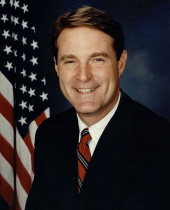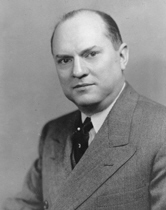Evan Bayh’s Exit from the U.S. Senate Unprecedented in the History of Indiana Politics
Bayh is only elected Democrat from Indiana since popular vote elections to exit the U.S. Senate for reasons other than defeat at the ballot box or death

And while Evan Bayh’s decision to retire after two terms in the U.S. Senate, is, by at least Bayh’s own account, a departure on his own terms, many Democrats are fuming at the junior Senator from Indiana for the vulnerable position his decision has left the Party in the 2010 election cycle.
If Democratic leaders were surprised at Bayh’s decision, that is because the move was unprecedented in Indiana politics. Here’s why:
Senator Bayh’s pronouncement to step aside and not seek reelection gives him the luxury to leave the U.S. Senate on terms not enjoyed by any of his Democratic predecessors in the traditionally Republican Hoosier State.
Prior to Bayh, since popular vote elections were introduced nearly 100 years ago, every other elected Democratic Senator from Indiana exited the Senate ‘going down fighting’ – by either losing at the ballot box, or by dying in office.
Here is the fate of Bayh’s Democratic predecessors:
· The most recent Democratic Senator from Indiana to leave the Senate on terms not of his own making was Bayh’s father, Birch (1963-1981). The elder Bayh was defeated by Dan Quayle in his quest for a 4th term during the Reagan revolution election of 1980, when a 58-41 Democratic advantage turned into a 53-46 deficit.
· Prior to Bayh, Vance Hartke (1959-1977) was similarly defeated in his attempt at a 4th term in office – by current Republican Senator Richard Lugar in 1976.
· Future Supreme Court Justice Sherman Minton (1935-1941) lost his attempt at a second term by less than 24,000 votes when GOPer Raymond Willis defeated him in 1940.
· Frederick Van Nuys (1933-1944) died in office near the end of his second term.
· Samuel Ralston (1923-1925) died in office less than three years into his first term.
· John Kern (1911-1917) lost his reelection bid for a second term in 1916.
· Benjamin Shively (1909-1916) died in office in his second term. (Democrat Thomas Taggart was appointed in March 1916 to fill the vacancy caused by the death of Senator Shively, but lost the special election to fill his seat that November).

Republican Senators from Indiana have enjoyed much more volitional exits as a whole since popular vote elections were introduced in 1914.
While three Senators were eventually defeated in reelection bids (Arthur Robinson, James Watson, and Homer Capehat) and one lost his party’s nomination (Harry New), four Senators retired from office (Raymond Willis, William Jenner (twice), and Dan Coats) and a fifth resigned (Dan Quayle, to become Vice President of the United States).
No Republican Senator has died in office in over 130 years.
Bayh, however, cited the death of bipartisan comity on Capitol Hill as a motivating factor in his decision to not seek reelection.
Follow Smart Politics on Twitter.

Ironically, Bayh himself would become the Senate standard bearer for this very seat 6 years on, upon the withdrawal of the regularly chosen nominee. Near the end of the said campaign, it was revealed that Bayh, while senator, in fact had been shopping around for lucrative private sector gigs (covertly in 2009, somewhat more openly from mid-February onward in ’10), well before he officially announced his “volitional” exit (extremely rare for a DEM, as noted). Moreover, the (prime) reason that the local Ds were “fuming” at Bayh was that he had made the surprise declaration THE DAY BEFORE the deadline for primary filing, denying other prospective contenders to become the nominee in the regular manner. Aside from his party’s presidential ticketmate – to whom he had been close politically for decades – Bayh arguably was his party’s most prominent loser of the election cycle – at least based on the expectations of the national political media establishment.